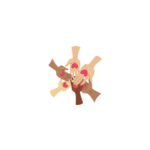Intent
Following the national curriculum for Science, our intent is that all our children will:

Head
- Learn scientific facts and theories.
- Have opportunities to create, through designing experiments and predicting results
- Have opportunities to observe, explain, record, enquire, test, evaluate and conclude.

Heart
- Foster curiosity and creativity about what they are learning and about the world around them. to ask questions
- Foster a love of learning new knowledge and skills, a love of building on existing knowledge and skills and a love of creating, planning and undertaking scientific experiments, methodically.
- Have resilience and determination by knowing that hard work will give us the answers and help us to succeed e.g. repeating experiments for fair testing. To know that it is OK to not get things right all of the time and we learn from mistakes.

Hand
- Begin to answer their own questions about the world around them.
- Will be well equipped with the scientific knowledge required to understand the uses and implications of science, today and for the future.
- Understand that science is essential to everyday life and the impact it can have on our planet.
Implementation:
- A clear and comprehensive scheme of work in line with the National Curriculum where teaching and learning should show progression across all key stages within the strands of Science through the specific disciplines of biology, chemistry and physics.
- Children have access to key language and meanings in order to understand and readily apply to their written, mathematical and verbal communication of their skills.
- Children will use a range of resources to develop their knowledge and understanding that is integral to their learning and develop their understanding of working scientifically.
- Knowledge organisers for each topic will show the teaching and learning that will take place and highlight the specific vocabulary for the topic.
- Children will reflect on previous learning and cross curricular links will be made wherever possible
- Children will be able to build on prior knowledge and link ideas together, enabling them to question and become enquiry based learners.
- Attainment will be assessed each half term through related topic assessment tasks
Impact:
The impact of our Science curriculum is that each child learns more, knows more and remembers more so that they reach their full potential in this curriculum area.
- Most children will achieve age related expectations in Science at the end of their cohort year.
- Children will retain knowledge that is pertinent to Science with a real life context.
- Children will be able to question ideas and reflect on knowledge.
- Children will work collaboratively and practically to investigate and experiment.
- Children will be able to explain the process they have taken and be able to reason scientifically.
Useful Science Web-links
Create your own home or school experiments with Science Bob!
http://www.sciencebob.com/experiments/
BBC Science Links for 4-11yr olds
www.bbc.co.uk/schools/websites/4_11/site/science.shtml
Fun Interactive Science Games and Investigations
www.sciencekids.co.nz/gamesactivities.html
Science Museum –Interactive Games and Information
www.sciencemuseum.org.uk/online_science/games.aspx
Science – Visit the Children’s University accredited sites www.peterboroughlearning.org.uk/peterborough-children-s-university.html
At English Martyrs we follow the National Curriculum for Science.
The National Curriculum for Science aims to ensure that all pupils develop scientific knowledge and conceptual understanding through the specific disciplines of biology, chemistry and physics. It also states, that all pupils develop an understanding of the nature, processes and methods of Science through different types of Science enquiries that help them to answer scientific questions about the world around them. In addition, we will ensure pupils are equipped with the scientific knowledge required to understand the uses and implications of Science, today and for the future.
By the end of their time here at English Martyrs , pupils will have a firm foundation of skills which enable them to ‘work scientifically’ as well as a knowledge and understanding of some of the key principals for each aspect of Science that will enable them to make a smooth transition to KS3 – being Secondary Ready! Pupils will enquire, observe, investigate and discover in their learning!
There are 2 aspects of Science which run side by side:
Curricular Content – knowledge, understanding and application of learning.
Science Skills – scientific inquiry, investigation, analytical thinking and scientific literacy.
Key Areas of Science: • Living Things, Animals (including Humans) and plants • Earth and Space • Light • Electricity • Sound • Forces • Materials
What we do well as a school: –
When visited by Schools providing peer support it was noted that:
Pupil behaviours and attitudes towards science were excellent
Staff commitment, attitude towards and subject knowledge within Science were very good.
Teachers at English Martyrs use a variety of teaching and learning styles in science lessons. We aim to develop children’s knowledge, skills and understanding in science and to develop an enquiring mind. We do this through lessons, which include a mix of whole class, group work, paired work and individual teaching. We encourage children to ask and answer scientific questions and wherever possible, we encourage the children to use and apply their learning in everyday situations. We use ICT and the interactive whiteboard to enhance the children’s learning where appropriate.
Although it is taught as a discrete subject, science elements are also explored as part of a topic and lends itself very well to cross curricular activities, which teachers embrace e.g. Maths, genres of writing, topic. In Key Stage One and Early Years a science theme sometimes directs the topics.
Elements of science are explored through our outdoor learning sessions. We have a pond area and resourced ‘science shed’ and onsite forest School area as part of our outdoor learning environment. Children also have a termly session visiting a forest school off site run by qualified Forest school leaders.
Curriculum design – please refer to separate document
Response to Covid
During the National Lockdowns of March 2020 and January 2021 teaching and learning within Science was continued through the Class Dojo site for children working from home and within school for those children who were in the building. Teachers continued to teach and set appropriate activities. These were marked and assessed. Records were kept of which pupils did not complete work at home.
The majority of the Science work was completed by most children and they seemed to enjoy and be motivated to complete the work.
Resources
We use a wide range of resources, including practical equipment, a wide variety of interactive and informative websites for each topic.
We (in normal circumstances) include visits to local secondary schools to use their facilities and invite science experts in to share their expertise e.g. during Aspirations Week.
Training
Reach Out CPD
Network meeting for science lead
What have we learnt from previous monitoring?
When visited by schools providing peer support it was noted that:
Pupil behaviours and attitudes towards science were excellent
Staff commitment, attitude towards and subject knowledge within Science were very good.
Through science co-ordinator monitoring it was also noted that:
Extended writing is seen in most KS2 classes
Cross curricular links are strong
Pupils really like Science at English Martyrs.
Next steps
- Challenge within lessons – how can we ensure every child is learning new knowledge and skills at level appropriate to them and their age.
- What opportunities for revisiting and reinforcing prior knowledge previous units/year groups are provided within lessons?
- Knowledge organisers are used – how they are made and used within lessons. Do their content match what teachers are teaching?
- Developing a concise assessment – which will assess knowledge and skills.
- Linking to everyday life – how well is this done?
Further documents:

